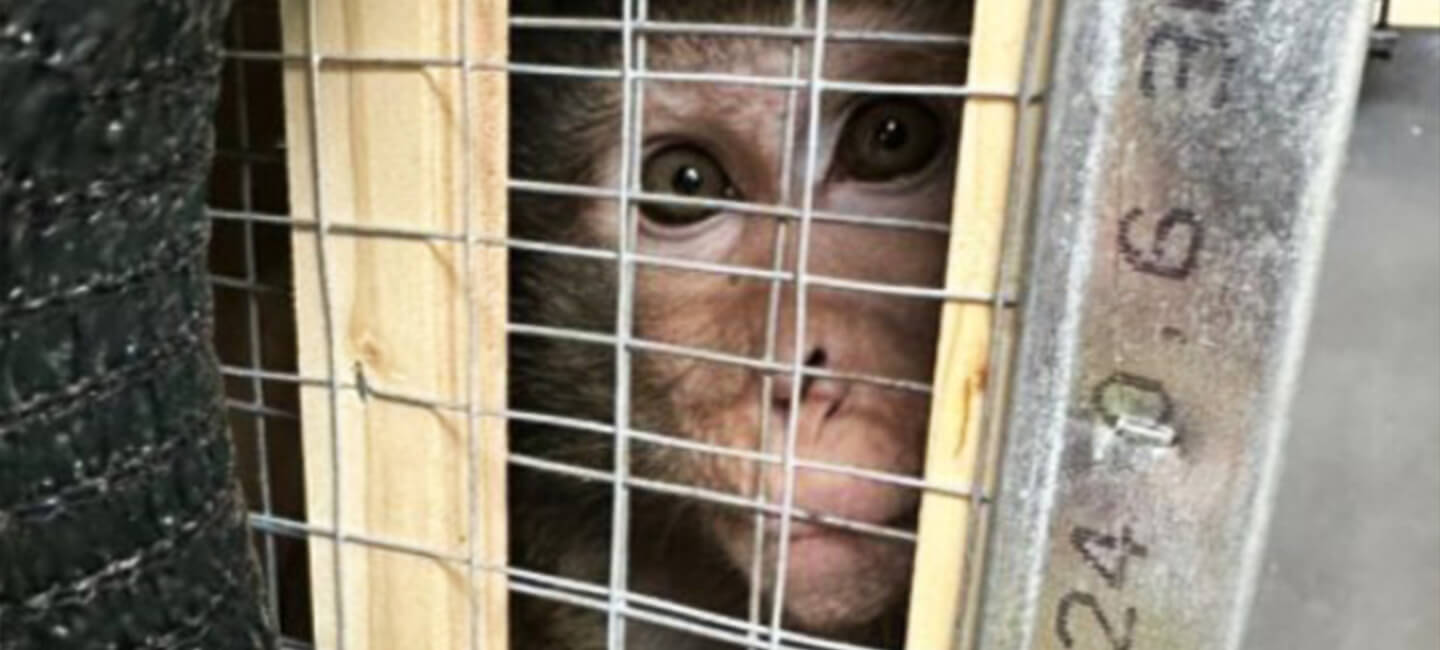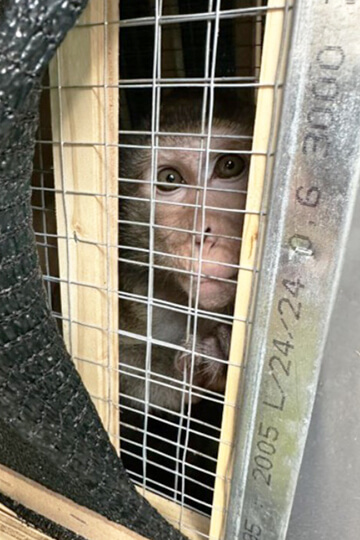

Expansion of the Rousset primatology station: faced with the CNRS's opacity, One Voice takes action
Since the summer of 2024, One Voice has been alerting the public to the CNRS’s plan to transform the current primatology station in Rousset into a national primatology center, tripling the number of monkeys bred on the site and selling them to laboratories. This move runs counter to European commitments to reduce the number of animals used by laboratories… and the CNRS remains worryingly opaque about it despite our legitimate requests for documents. We are taking legal action to shed light on this breeding program and call on animal rights activists and advocates of new technologies to participate in the preliminary consultation and public meetings to express their opposition.
2,000. This is the number of monkeys that the CNRS wants to breed at the future National Primatology Center in Rousset. Thanks to no less than €30 million in public funding, long-tailed macaques, classified as an “endangered” species, rhesus macaques, and many others will then undergo all kinds of experiments in France… or elsewhere in Europe. Experimenters profit considerably from this suffering, as each primate can be sold for up to €30,000. Faced with such a lucrative business, their lives are sacrificed without hesitation…
A cynical project… that refuses any transparency
For months, One Voice has been met with a wall of silence. Documents relating to the Rousset primatology station, which should be freely accessible to the public, are still being withheld from us. However, our requests, submitted last January, received a favorable opinion from the Commission for Access to Administrative Documents (CADA). Despite this decision, the CNRS continues to refuse to provide us with the information to which we are entitled.
Why is there so much secrecy surrounding this publicly funded project? What are they trying to hide? Is it to prevent us from revealing what goes on in the laboratories to which the breeding facility sells its primates?
Among them was Fenouil, a marmoset who spent several years in Rousset and died in 2022 after numerous experiments. As if that weren’t enough, he was also exploited for breeding. He had eight offspring, including Nuphar, Narcisse, and Navet, born in 2017.
Nuphar died the same year as his father in the same experiment devoted to the study of oculomotor and social behavior. A few days before their deaths, they both underwent intracerebral injections.
Narcisse and Navet died in 2020 after being used in experiments under the same protocol.
These family destinies illustrate the scourge of captive breeding for animal experimentation, where several generations of animals undergo the same procedures and unspeakable suffering, one after the other.
We are calling for the abandonment of the project to expand the Rousset Primatology Station and for the funds allocated to this program to be transferred to the financing of alternative methods to animal experimentation.
You too can speak out for these tortured monkeys by sharing our publications and participating in the following public meetings:
- October 16 and November 13 at the Faculty of Sciences in Aix-en-Provence;
- October 25 at the CNRS in Marseille;
- November 4 for a visit to the Rousset Primatology Station;
- and finally November 5 in Rousset.
Starting October 16, participate in large numbers in the preliminary public consultation. Let’s demand an end to the use of primates in laboratories!